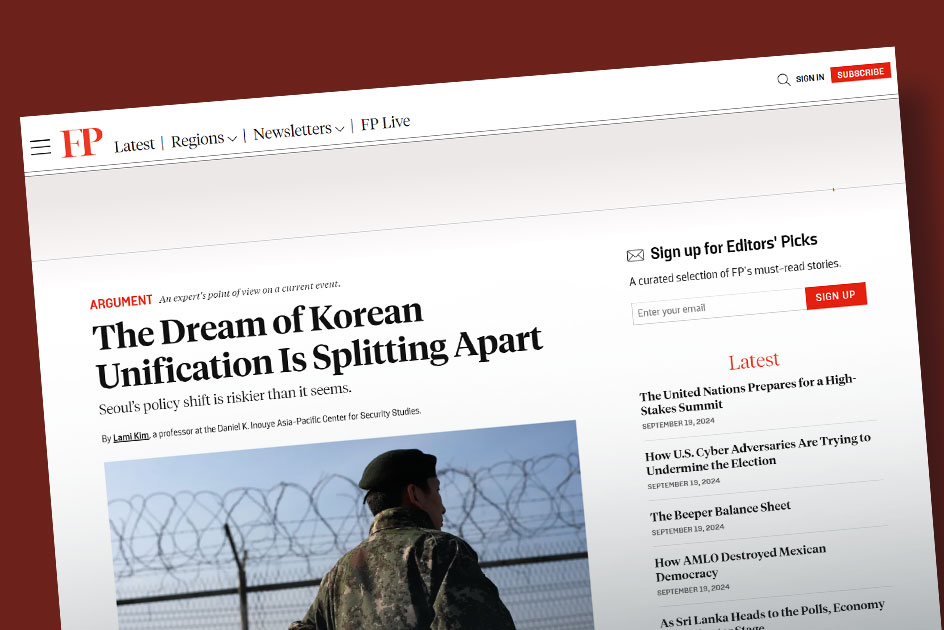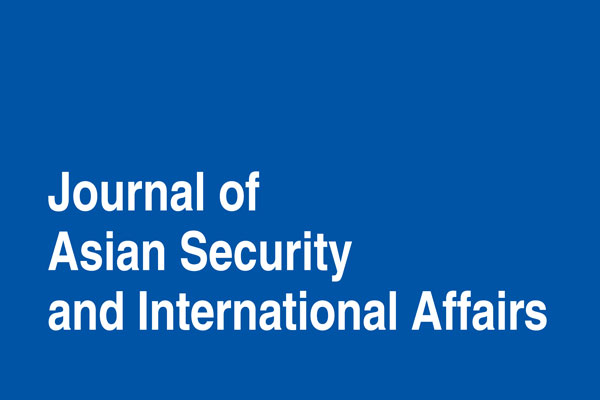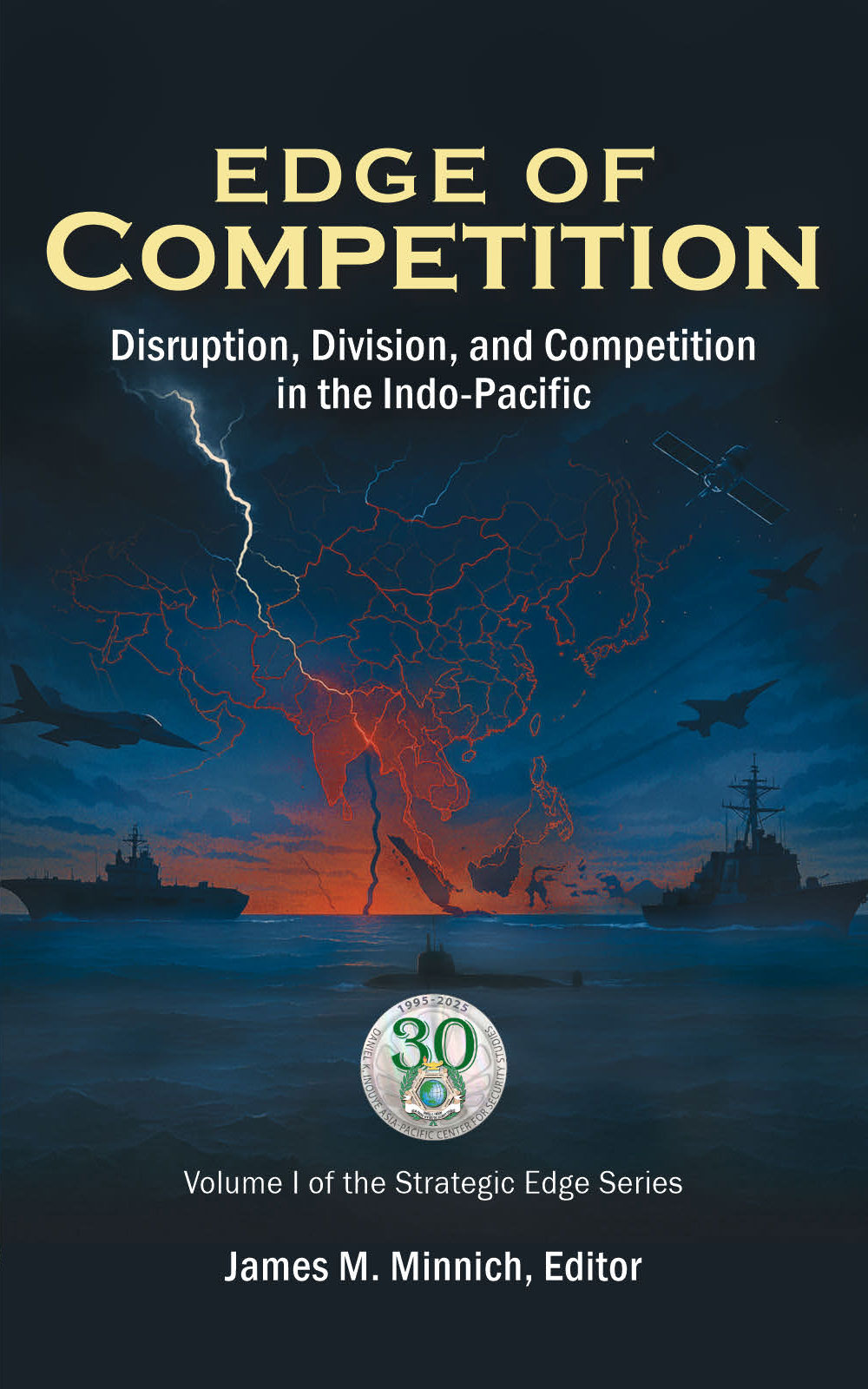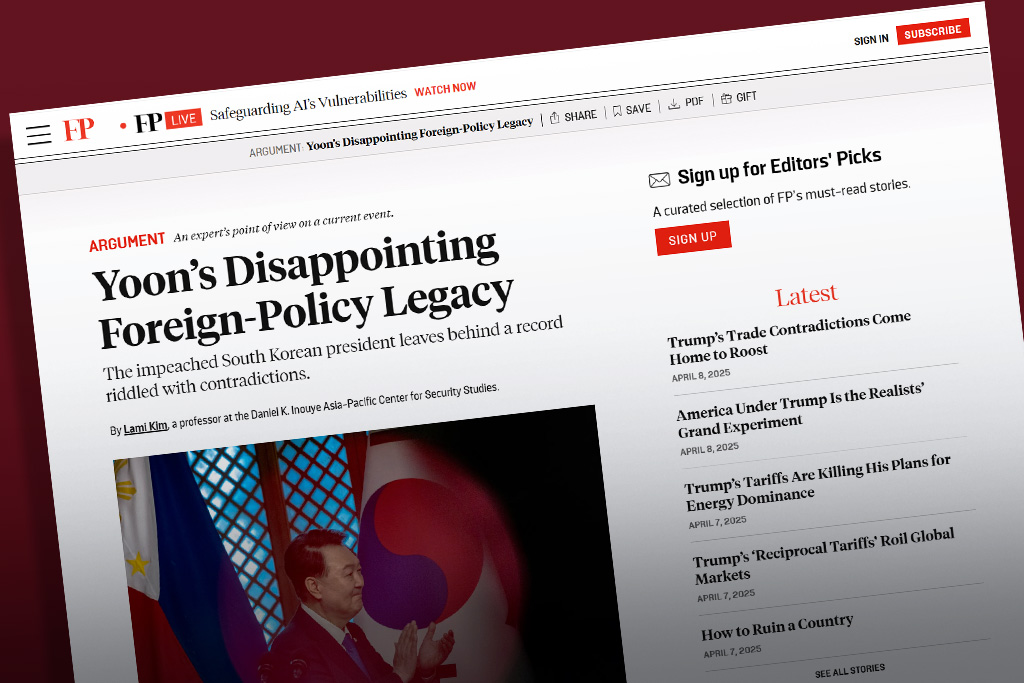Dr. Lami Kim’s new article published by Foreign Policy explores the diverging visions of Korean unification presented by South Korean President Yoon Suk-Yeol and North Korean leader Kim Jong Un. In a recent speech, Yoon called for the creation of a “unified, free, and democratic nation” across the Korean Peninsula, arguing that unification is incomplete until North Koreans are free. In contrast, Kim renounced unification in December 2023, signaling a desire for a permanent division between the two Koreas.
On the surface, Seoul’s position seems benign, while the specifics of Pyongyang’s rhetoric appear aggressive and provocative. Upon closer examination, however, Pyongyang’s stance could suggest an attempt to coexist with the South—a two-state solution—whereas Seoul’s call for a unified, democratic Korea might be perceived by the North as a denial of the Kim regime’s legitimacy and an incitement of popular uprising.
Pursuing unification by encouraging regime collapse offers no tangible benefits and only heightens tensions on the Korean Peninsula. Given the risks of escalation, an official two-state solution is worth considering. As distinct countries, the two Koreas could coexist—not necessarily amicably but coexist nonetheless.
Lami Kim, Ph.D.
Professor of Security Studies
Daniel K. Inouye Asia-Pacific Center for Security Studies
Defense Security Cooperation Agency
U.S. Department of Defense
The views expressed in this article are the author’s alone, and do not necessarily reflect the official position of the DKI APCSS or the United States Government.










Leave A Comment